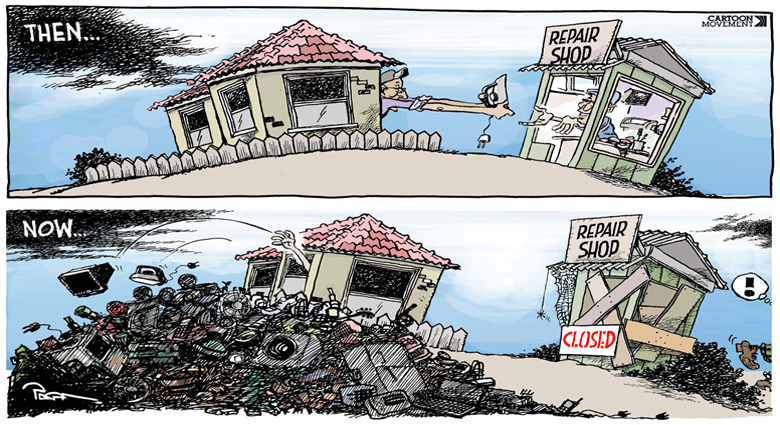Facebook recently wrapped up a promotion tour designed to lure U.S. publishers to deliver their news feeds to Facebook. Since Facebook’s 1.4 billion users give it the world’s biggest platform, this move, if successful, would define the very future of news delivery.
People in the world of branding might feel a tinge of déjà vu when they hear this. Can you hear the whisper: “private labels”? Sell us your merchandise as cheaply as you can. In return, we’ll label it with our brand name and sell it in our stores. Supermarkets love the private-label concept, since it transfers consumer loyalty to them. Manufacturers hate it, since it leaves them stripped of all consumer loyalty and in possession of only one remaining strategy for leverage: price.
Today, the Swiss supply content to almost every watch manufactured in the world.
What does this have to do with news? Well, think about the last time you bought a newspaper. Chances are, you hardly remember.
I love the free New York Times , but when the system tells me my quota is up, I don’t reach for my credit card. Instead, I open another browser to get access to another round of articles. “Come on, Martin,” you may be saying, “what’s wrong with you?” Sorry, that’s just how I’ve been trained -- and I’ll bet you have, too.
In the early 1980s, the world-famous Swiss watch manufacturing industry faced a crisis similar to that confronting the news industry today. The Japanese were running with the idea of the commercial quartz wrist watch. Within one year, 66% of the analog watch industry died.
What was the Swiss manufacturers’ response? They did something surprising. Every major player in the Swiss watch industry joined to launch an operation called S-W-A-T-C-H. That’s right. The disposable plastic watches were born in 1983. Today, the Swiss supply content to almost every watch manufactured in the world. Rumors claim that even the Rolex contains Swatch parts. The Swiss watch industry is thriving.
What would have happened if the Swiss had been unable to align themselves? An entire industry would have vanished overnight.
But we were talking about the news, weren’t we? Is the news industry’s solution really that simple: alignment?
Let’s rerun the Swiss approach, using the news industry as our guinea pig. Imagine an alignment of the entire news industry. Not totally improbable, considering that the entire industry is on the brink of collapse. With just five dominating companies joining forces, 80% of original-content news would be locked in.
The five common-front news houses would need to agree on just one move: no more free news streaming. The result? No more free news for Google News. No more Facebook news feed. If you want the news, you’ll need to pay for it.
The Swiss showed it’s possible to turn back time. Now let’s see if the media can put the news back in the bag.
There would be a deafening uproar, followed by creative attempts to secure free news. But before long, consumers would realize that news costs money to produce. They’ve realized it in Scandinavia, where news houses aligned and the “free news” button disappeared.
Overnight, the ballgame would change. This wouldn’t solve every problem; monetizing the online world would still be an ongoing challenge. But for the first time in a long time, the news houses would find themselves in the driver’s seat.
The clock is ticking! AOL and Yahoo! are already creating the illusion of real news by hiring the likes of Katie Couric. But these online media outlets still have a long way to go before they truly own news production.
The Swiss showed it’s possible to turn back time. Now let’s see if the media can put the news back in the bag.





.png)




What Did You Think?